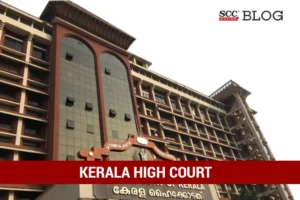Kerala High Court: In a petition by aspirants of Indian Army seeking to quash Recruitment Rally Notification for appointment as Agniveer General Duty, Agniveer Technical, Agniveer Clerk / Storekeeper Technical and Agniveer Personnel, along with seeking directions for continuation of earlier recruitment process, N. Nagaresh, J. refused to interfere with the same being policy matter. It further hinted towards the Government of India’s (GoI) deliberations for introducing Agnipath Agniveer Scheme.
Petitioners’ Version
The petitioners applied as per the notifications dated 21-10-2020 and 18-12-2020 for recruitment in the Indian Army, cleared the recruitment rally held before 2020 lockdown, cleared medical examination. However, the written examination was postponed from time to time. According to petitioners, the Union Govt. committed before the Parliament to finalize recruitment process already commenced. However, the Govt. of India cancelled the said recruitment process and framed a new scheme called ‘Agnipath Scheme’ for recruitment to Military Services, which only modified the age limit and maximum age limit to 21 years, and for the present year, the upper age limit was relaxed to two years. The service conditions, including pay and pension were substantially altered.
The petitioners expressed their legitimate expectation to be recruited to the Indian Army after having undergone recruitment rally, which was undermined after notification for recruitment as Agniveers. It was alleged that the Govt of India cannot substitute permanent soldiers with temporary staff without appropriate legislation or rules framed under Article 309 of the Constitution of India. It was further argued that making Army young by reducing age of recruitment was unscientific, and that the Govt. Miserably failed at assessing the social impact possibly to be caused by trained employed youth aged 21-25 years. Further arguments were extended on short-term training of Agniveers affecting a settled married life, making them tough and not responsible.
Government’s Stand on Agniveer Scheme
It was explained by the Deputy Solicitor General that the Agniveer Scheme was framed after considering the peculiar border situation and incessant threats made by hostile neighbouring nations to infiltrate the borders of India, pointing towards India’s geographical position as – “Geographical terrain of India inclusive of mountain ranges, swampy marshes, jungles, deserts, riverine and glaciated regions as well as isolated island territories forced the Government to establish a more youthful, agile and physically fit Armed Forces which is well equipped to deal with such terrains.”
It was argued that the average age of officers of the Armed Forces was 32 in India, as compared to the global average of 26 years, and that the Agniveer Scheme was intended to have a force of young Jawans, Sailors and Airmen between the age of 18 to 25 years, supervised by experienced regular cadre personnel.
Court’s Analysis
The Court noted that the Agniveer Scheme was notified by GoI on 15-06-2022 enabling youth to join Armed Forces for a 4-year term to hold a distinct rank, and that on completion of the said period, 25% of them would be enrolled in regular cadre, while the remaining Agniveers would exit into civil domain. As per the GoI, the Agniveers will be provided with skill certificates which will enable them to apply for various jobs in the Govt. As well as Pvt. Sector.
The Court acknowledged that the Agniveer scheme was framed after detailed deliberations by the GoIafter studying military intake and retention models of several countries, and regarded the issue raised in the instant petition to be sensitive one.
The Court was of the view that policy decision should be left to the Govt. For matters pertaining to national security. It expressed that “So long as the decision of the Government does not infringe fundamental rights of citizens, the Courts have no reason to interfere”. Placing reliance on State of Orissa v. Gopinath Dash (2005) 13 SCC 495, Centre for Public Interest Litigation v. Union of India, (2016) 6 SCC 408 and State of Maharashtra v. Bhagwan (2022) 4 SCC 193, the Court pressed upon refraining from interference with policy decisions having a cascading effect.
Regarding petitioners’ ‘legitimate expectations for recruitment to the Armed Forces through the regular stream’, the Court pointed towards the settled proposition in service jurisprudence that participation in a recruitment rally or written examination does not confer any right, and that even the candidates having secured their place in the final selection list lack any indefeasible rights for appointment. The Court expressed that “While reducing the age limit from 21 years to 17½ years for recruitment as Agniveers, the Government has considered various aspects including the distinct and challenging geographical terrains in the borders of India and also the system of Army maintained in various world countries.”
Highlighting the petitioners’ failure in advancing any tangible reason to warrant Court’s interference in Agnipath Scheme, the Court dismissed the instant petition.
[Rahul Subash v. Union of India, 2023 SCC OnLine Ker 10448, decided on 22-12-2023]

